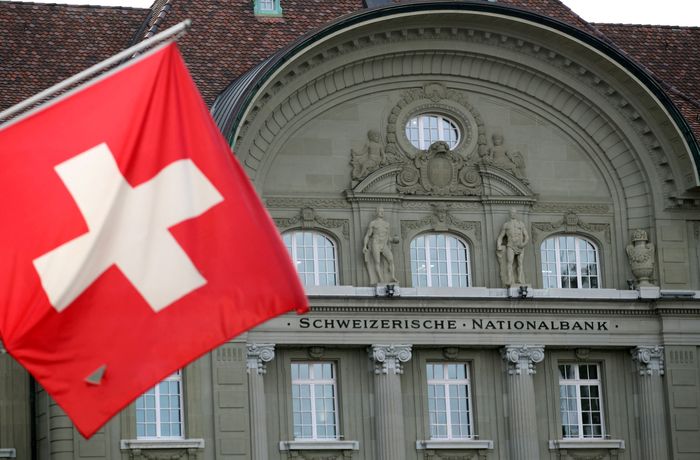
The Swiss National Bank (SNB) has cut its key interest rate for the second time this year, reducing it by 25 basis points to 1.25%. This decision, announced on Thursday, responded to anticipated reductions in inflationary pressures.
In May, inflation rose slightly to 1.4% from April but is expected to average around 1.3% for the remainder of the year. The SNB projects that if interest rates remain at 1.25%, inflation will fall to 1.1% in 2025 and further to 1% in 2026.
According to the central bank, “The underlying inflationary pressure has decreased again compared to the previous quarter. With today’s lowering of the SNB policy rate, the SNB is able to maintain appropriate monetary conditions.”
The SNB’s decision aligns with the expectations of two-thirds of economists polled by Reuters, who had anticipated a 25-basis-point cut to 1.25%. The central bank’s statement highlighted that higher inflation in rents, tourism services, and oil products contributed to the recent increase. Still, overall inflation is being driven primarily by domestic service prices.
Switzerland’s banking and financial services sector, traditionally a cornerstone of its economy, has been facing challenges; however, the recent collapse of Credit Suisse and increasing competition from financial hubs like Hong Kong, the US, and Singapore have pressured the sector. As Switzerland continues to ease monetary policy, other major economies, including those in Europe and the US, are trying varied strategies to manage inflation.
About The Author
Related Articles
Night Gunfire Near Presidential Palace Sparks Tension in Ouagadougou
Gunshots were heard late on the night of February 28 into March...
ByWest Africa WeeklyMarch 3, 2026Uganda to Start Domestic Gold Purchasing Programme to Boost Reserves
Uganda’s central bank has announced plans to launch a domestic gold buying...
ByWest Africa WeeklyMarch 3, 2026Ghana’s Cedi Expected to End 2026 Around GH¢12.85 to the Dollar
The Ghanaian cedi is projected to hold relatively steady against the United...
ByWest Africa WeeklyMarch 3, 2026Malian Prime Minister Presents 2025 Government Report, Pledges Stability and Reform
Mali’s Prime Minister, Major General Abdoulaye Maïga, has presented the government’s 2025...
ByWest Africa WeeklyMarch 2, 2026












